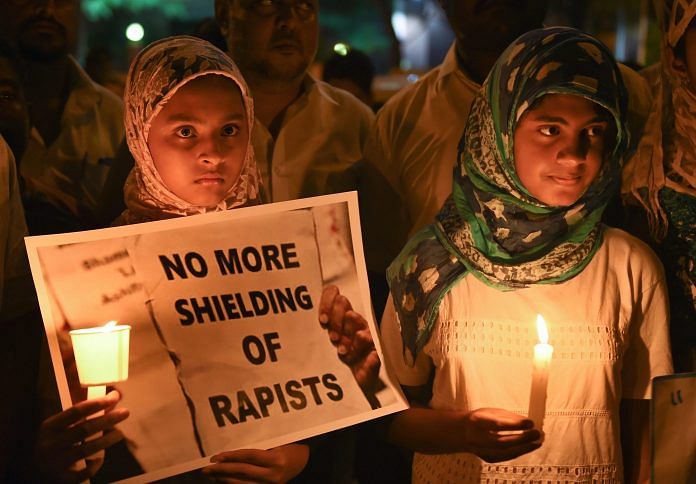Move comes in the wake of the BJP government promulgating an ordinance to award death penalty to child rapists.
New Delhi: The National Crime Records Bureau (NCRB) has invited tenders to develop and implement a National Registry of Sexual Offenders, a database that would track and monitor individuals — both adults and juveniles — convicted of sex crimes.
The move comes in the wake of the BJP-led central government promulgating an ordinance to award death penalty to child rapists, and asking the NCRB to maintain a national database and profiles of sexual offenders.
According to the request for proposal (RFP), a country-wide database containing records of “arrested and charge-sheeted” as well as “convicted” sexual offenders, will have to be prepared.
“The information on arrested and charge-sheeted offenders shall be available only for law enforcement agencies, whereas the data for convicted offenders shall be made accessible to public as well,” it says.
The information could be searched using parameters such as state, district, police station, modus operandi, among others.
The above two categories will be subdivided into juvenile offenders’ list and adult offenders’ list.
Crimes to be covered
While sex crimes are not specifically defined under any existing penal law(s), the RFP rather broadly notes, “Offences which are sexual in nature and committed against women or children are to be incorporated in this database.”
The incorporation of data will take place in two phases. While Phase I would include cases of rape and certain sections of the POCSO Act, Phase II would cover sections of the Information Technology (IT) Act, all of POCSO, Immoral Traffic Prevention Act and SC/ST Prevention of Atrocities Act.
Offenders, even if not convicted, would become part of this database, the RFP states.
Stakeholders
While the NCRB will be the primary agency, day-to-day issues would be resolved by the vendor agency selected for operations and maintenance, the RFP says.
Other stakeholders would include state police, public and other agencies. Police would “ensure that the SOPs for entering data in case of sexual offences are followed properly and the data gets, synced/entered into the Crime and Criminal Tracking Network & Systems (CCTNS).
Citizens will be able to retrieve records on sexual offenders on the basis of police station, region and other parameters.
‘An extra-judicial sanction’
However, experts say that the move is a step further away from the rehabilitative aspect of justice, especially for juveniles, who must be given a fair chance by the system to reform.
“After the death penalty for child rapists, this is yet another populist move by the government,” argues Jayshree Bajoria, a consultant with Human Rights Watch.
“It does not recognise the basic reality that most rapes in India, and child sexual abuse, especially, are perpetrated by those known to the victim…How then is a registry going to work?” she asks.
In addition, the continued social ostracisation of those who have already completed their sentence would preclude the integration and reformation of offenders in perpetuity, argue some experts.
“Such a database ensures that one’s identity as a criminal never ceases to exist,” said lawyer Apar Gupta.
“Any person against whom an FIR is filed, is almost always chargesheeted,” he added, arguing that effectively, an FIR against a person could put his/her name into the database.
In addition, pointing to the social ostracisation of those on the list, Gupta said the system would ensure that there is “an extra-judicial sanction on these people even before a judicial verdict is announced”.
The privacy question
There are fewer than 10 countries which have such a database. India would, in fact, only be the second country in the world, after the US, to make such a database public.
Even when the data would not be made public — as in the case of the chargesheeted and arrested offenders — the risk of data breach would remain, argues Gupta.
“India does not have a robust data protection law. Therefore, even if an agency were to misuse data, the government would not be able to claim damages,” he said.
Moreover, the data could very well be shared by the law enforcement agencies to organisations on demand, further expanding the scope of misuse by private agencies.



